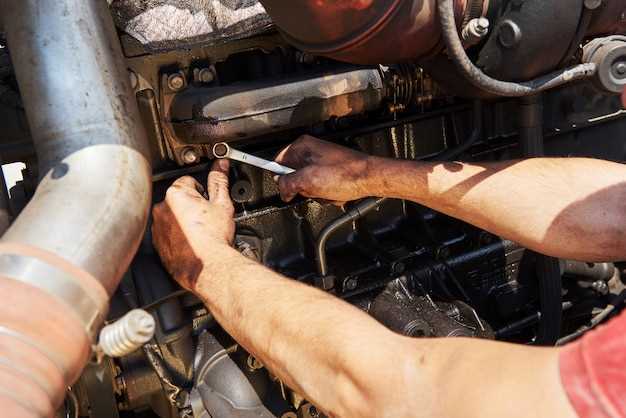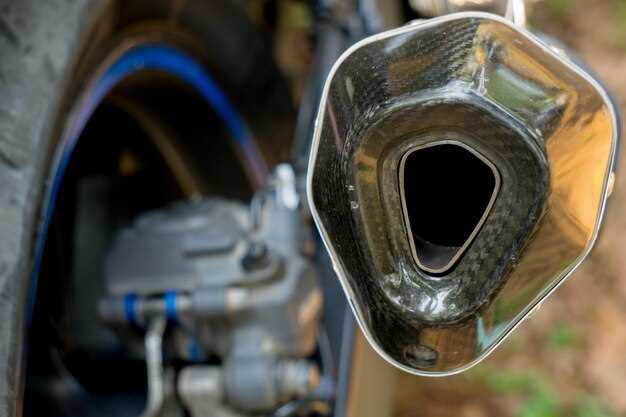

The decision between a legal street exhaust and an off-road exhaust system for diesel vehicles often revolves around the intended use of the vehicle. For many enthusiasts, the thrill of performance on the race track is a significant factor, while others may prioritize daily driving and compliance with local regulations. Understanding these distinctions is crucial as they can significantly impact both performance and legality.
Legal street exhaust systems are specifically designed to meet emission standards and noise regulations set by government authorities. These systems aim to provide acceptable performance without compromising the environmental standards associated with diesel vehicles. On the other hand, off-road exhausts are built for maximum performance, often favoring high flow rates and aggressive sound profiles that resonate with the racing community. However, these systems typically lack the certifications necessary for street use.
When choosing between legal and off-road exhaust options, it’s essential to consider local laws and personal preferences. While race enthusiasts might be drawn to the robust sound and enhanced power of off-road exhausts, street legal systems offer peace of mind and the ability to drive legally on public roads. Balancing performance needs with legal requirements will help ensure that your diesel vehicle meets both your performance aspirations and street legality.
Understanding Emission Regulations for Street Legal Exhausts

Emission regulations play a crucial role in determining the legality of exhaust systems for diesel vehicles. These rules are enforced to ensure that vehicles meet specific environmental standards, minimizing harmful pollutants released into the atmosphere. Street legal exhaust setups must comply with guidelines set by governmental organizations, such as the Environmental Protection Agency (EPA) in the United States, which oversees emissions from all types of vehicles.
To qualify as street legal, an exhaust system must be designed to reduce emissions to acceptable levels while maintaining optimal performance. This often involves using catalytic converters and mufflers that meet stringent noise and emissions standards. Modification of original exhaust systems is permitted only if the new setup adheres to these regulations; otherwise, a vehicle may be subject to fines, increased taxes, or even impoundment.
One key aspect of emission regulations is the requirement for specific certification. Manufacturers of street legal exhaust systems often undergo extensive testing to ensure their products meet or exceed required standards. Consumers should look for products labeled as “EPA compliant” or “CARB certified” to ensure that the exhaust systems are legally acceptable for street use.
Moreover, it is essential to stay updated on local and state regulations, as they can vary significantly. Some jurisdictions may have more stringent requirements than federal guidelines. Therefore, diesel vehicle owners must research and understand the specific laws in their area to ensure that any modifications made to their exhaust systems remain compliant.
In conclusion, understanding emission regulations is vital for anyone considering modifications to their diesel vehicle’s exhaust setup. Staying compliant not only helps in avoiding potential legal issues but also contributes to environmental protection by reducing harmful emissions.
Benefits and Drawbacks of Off-Road Exhaust Systems
Off-road exhaust systems offer several advantages for diesel vehicle enthusiasts who prioritize performance and durability. One of the primary benefits is increased horsepower and torque. These systems are designed to reduce back pressure, allowing the engine to breathe more freely, which can enhance overall performance during off-road activities. Moreover, off-road exhausts are often made from more robust materials, providing better resistance to the harsh conditions encountered in rugged terrains.
Another significant benefit is the distinctive sound produced by off-road exhaust systems. Many drivers prefer the aggressive tone that comes from these setups, contributing to a more exhilarating driving experience. This sound can also act as an auditory warning to wildlife or other drivers when navigating through isolated areas.
However, there are potential drawbacks to consider. Off-road exhaust systems are typically not street legal. They may violate local noise ordinances or emissions regulations, making them unsuitable for everyday driving. Installing one could lead to fines or issues during vehicle inspections, limiting where the vehicle can be driven legally.
Additionally, while off-road exhausts are built for durability, they can be louder than factory systems, which not only may attract unwanted attention but also contribute to cabin noise. This can make driving on paved streets less comfortable, detracting from daily usability. Lastly, the installation of such a setup may require modifications to the vehicle, potentially leading to increased costs and complexity during installation.
Key Considerations for Race Setup in Diesel Vehicles

Designing an effective race setup for diesel vehicles requires a thorough understanding of both performance needs and the unique characteristics of diesel engines. Below are key considerations to keep in mind:
- Power Delivery: Diesel engines provide high torque at lower RPMs. Adapt your race setup to utilize this characteristic effectively while ensuring peak power delivery aligns with race requirements.
- Exhaust System: Choose between legal and off-road exhaust options. Off-road systems often enhance performance by reducing backpressure. However, legal exhausts may be necessary for street racing and compliance with regulations.
- Fuel Quality: Use high-quality diesel fuel for optimal combustion efficiency. Consider upgrading fuel injectors and systems to increase the flow and improve performance.
- Tuning: Proper ECU tuning is crucial. Fine-tune the engine parameters, including fueling and timing, to maximize performance, especially under race conditions.
- Cooling System: An efficient cooling system is vital. Performance races generate significant heat, so investing in upgraded intercoolers and radiators can prevent overheating.
- Suspension Setup: Adjust the suspension to handle the specific demands of racing. Stiffer springs and dampers may be necessary to stabilize the vehicle during high-speed maneuvers.
- Weight Reduction: Minimize weight where possible. Consider replacing stock parts with lighter alternatives to enhance acceleration and handling.
- Tires: Select tires that offer the right balance of grip and durability for race settings. The type of surface will dictate the best choice, whether for a smooth track or rugged terrain.
In summary, achieving a competitive advantage in diesel vehicle races requires careful planning and execution of these key considerations. Each component of the setup must work harmoniously to ensure optimal performance on the track while still adhering to any necessary regulations for street racing.






